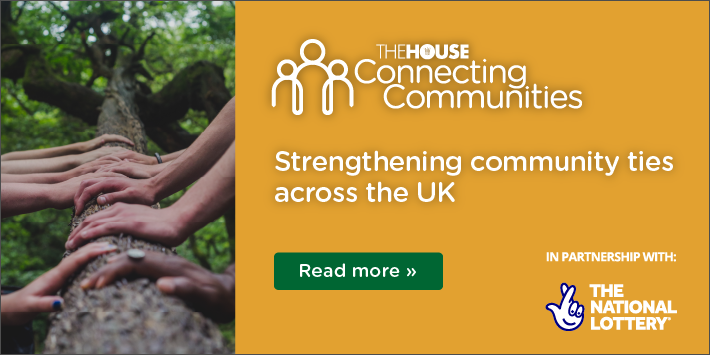It is kindness that underpins community across the UK
4 min read
As we move forward, let's create a fairer society with kindness and equality at its core.
A quick peek at social media and it won’t take you long to come across the hashtags #bekind or #kindness.
While it’s great to see kindness as a virtue trending on these online platforms, it’s in the real world rather than the virtual where I have been lucky enough to witness the enormous effort and hard work that goes into turning actual kindness into solid, practical and much needed help.
As MP for Dunfermline and West Fife, I’m incredibly proud of the amazing community spirit in my constituency.
Before Covid, local charities, churches and concerned citizens were already providing a myriad of invaluable services to those in need; during the pandemic, they have done their upmost in difficult circumstances to keep these valuable lifelines afloat.
For many people, both in my constituency and across the country, it is food insecurity that is their gravest concern, an insecurity that has grown as we review the last 12 months in and out of lockdown.
A recent British Red Cross report entitled ‘The Longest Year’ identified two groups hardest hit by Covid, those already in poverty further pushed to “the brink” by the virus, and also “the newly vulnerable”, people who had never needed help before but are now struggling due to job loss, illness or wage cuts.
Research from the Trussell Trust mirror’s this concern, noting that at the start of the pandemic, around half of the already shockingly huge number of people using food banks had never needed this service pre-Covid.
It’s alarming to realise that so many people are falling through the gaps, forgoing food in order to feed their children, or skipping meals because their cupboards are empty.
It is into this breach that community groups and pragmatic individuals with innovative and imaginative approaches to helping people during lockdown have stepped, and I’m in awe of local efforts to reach out to isolated individuals, families and children, the elderly and disabled in our area.
One great initiative entitled Meal Makers is a food sharing project based in Glasgow which now also serves the whole Kingdom of Fife, not just my constituency.
These groups have gone above and beyond to make sure that, despite all the difficult factors around Covid such as lockdowns and social distancing, no one gets left behind or forgotten about, giving up their time to reach out and help their neighbours.
This local food-sharing project aims to help seniors suffering isolation and food poverty, connecting people who love to cook with an older neighbour, so they too can enjoy a freshly prepared home cooked meal and contact with those living close by.
Just a mile or two up the road from my constituency office, the Eats Rosyth community led charity who grow and share food, have been providing food to vulnerable people in the area, as has the Vine Church in Dunfermline, making free tasty meals for those in need.
These groups have gone above and beyond to make sure that, despite all the difficult factors around Covid such as lockdowns and social distancing, no one gets left behind or forgotten about, giving up their time to reach out and help their neighbours.
Of course, it must be said that it is not enough just to rely on the goodness of people giving up their time as part of this incredible community activism.
Food poverty is a terrible indictment of failure at the top level of government, and it certainly does not reflect the kind of Scotland we imagine for our future.
The Carnegie UK Trust charity based in Dunfermline has done a lot to reflect on the role of kindness in the pandemic and how we are at our best when we recognise the importance of emotions and deep human connections.
Here kindness is seen as a disrupter, a movement for change. It is kindness which underpins community action not just in my constituency but across the whole UK. It is kindness that demands change in public policy.
That is why I am delighted that the Scottish Government has adopted a human rights-based approach to food insecurity, while campaign groups such as the Common Weal in Scotland want to go further and make food a legal right, enshrining this commitment into Scots law.
I’m sure that community-based groups who see first-hand the level of need and support for food poor families and individuals will welcome these approaches.Their experience, expertise and knowledge will be invaluable as we move forward to create a fairer society with kindness and equality at its core.

